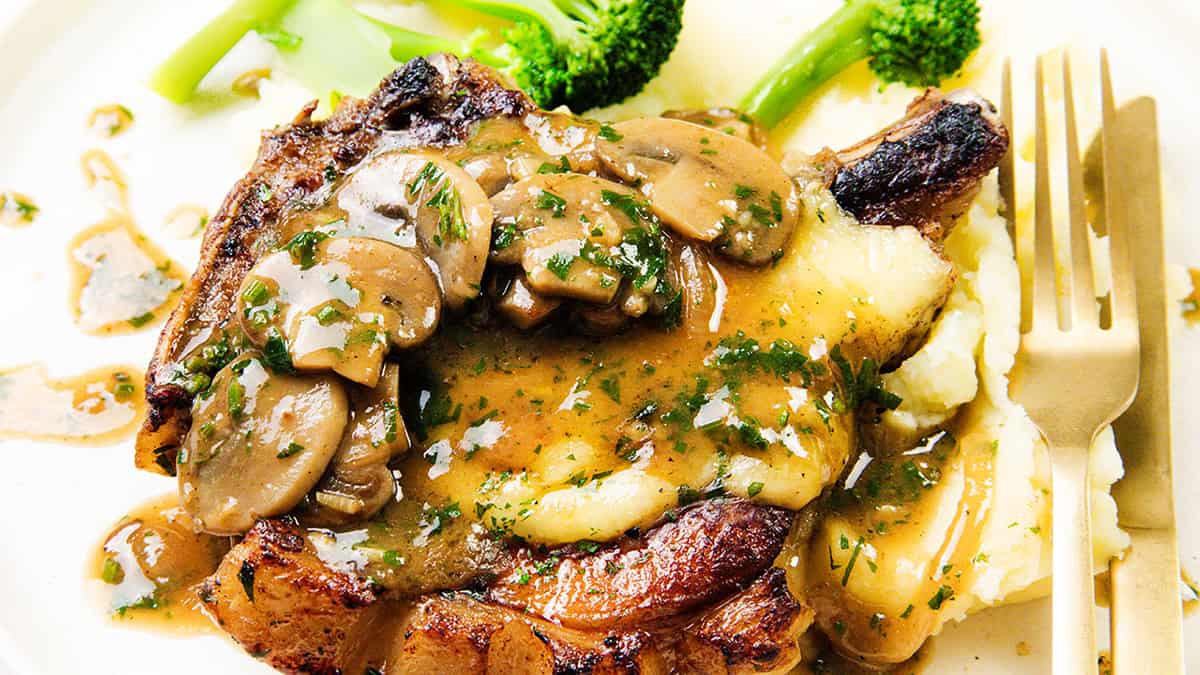Mayak eggs (Korean marinated eggs) are proof that simple ingredients can create something truly unforgettable. Soft boiled to jammy perfection and soaked in a savory sweet soy marinade, these addictive eggs are perfect as side dishes, lunchbox additions, or meal prep staples you’ll want to have on hand all week!

Why You Should Make it at Home
If you’ve ever had mayak eggs at a Korean restaurant or spotted them in a lunchbox photo online, you already know how tempting they look.
Mayak eggs (Mayak Gyeran, 마약계란) are Korean-style marinated eggs that are known for being incredibly addictive—in fact, “mayak” literally means “drug” in Korean (don’t worry, it’s just a nickname that hints at how irresistible they are!).
One of the best parts about making these eggs at home is how incredibly easy it is. With just a handful of pantry ingredients and a few simple steps, you can recreate these umami-packed, savory sweet marinated eggs that are bursting with flavor. You can also tweak the seasoning to suit your taste—more garlic, less spice, a touch sweeter—it’s totally up to you.
They’re perfect for meal prep, stay fresh in the fridge for days, and add instant flavor to rice bowls, noodles, or lunchboxes. Simple, delicious, and endlessly versatile!

Cooking Tips for Perfect Mayak Eggs
1. Use room temperature eggs.
Cold eggs straight from the fridge can crack when added to boiling water. To prevent that, let your eggs sit at room temperature for a couple of hours. I find that anything shorter, the egg stills cracks.
2. Time your eggs carefully.
For that perfect jammy yolk, boil your eggs for 6 to 7 minutes in already boiling water, then immediately transfer them to an ice bath to stop the cooking. That said, if you prefer the firmer texture of hard-boiled eggs, this recipe works just as well.
3. Peel gently!
I’d say this is probably the trickiest part of the recipe. Soft boiled eggs are delicate, so take your time when peeling. I like to gently tap the shell all over with a teaspoon to help crack it before peeling—and it works!
4. Let them marinate at least 12 hours (or overnight).
The longer they sit in the marinade, the deeper the flavor. If you can, let them soak overnight in the fridge for the most satisfying taste.
5. Rotate halfway through marinating.
If your eggs aren’t fully submerged in the container, give them a gentle turn halfway through marination to make sure they’re evenly coated. Otherwise, the color may look a bit patchy.

Ingredients
Main
- 8 eggs, at room temperature
- 1/2 Tbsp fine salt
- 1/2 Tbsp white vinegar
Sauce
- 3g / 0.1 ounce dried kelp (dashima / kombu)
- 1/2 cup water
- 1/3 cup soy sauce, regular (I use Kikkoman brand)
- 2 Tbsp honey
- 2 Tbsp brown sugar
- 1 Tbsp sweet rice wine (mirin)
- 1/2 Tbsp minced garlic
- 1/4 tsp ginger powder
- 50g / 1.8 ounce onion, finely chopped
- 20g / 0.7 ounce green onion (white part), finely chopped
- 1 red chili, seeds removed and finely chopped
Garnish (Optional)
- seaweed flakes
- sesame seeds
- green onion (green part), finely chopped
*1 Tbsp = 15 ml, 1 cup = 250 ml
How To Make
1. Place the dried kelp in a bowl with 1/2 cup of water and let it soak for 20 minutes to rehydrate. After soaking, discard the kelp but keep the soaking water—it will be used later. Set the water aside.

2. In a medium-sized pot, bring a generous amount of water to a boil over medium-high heat (about 8 minutes on a gas stove), adding the salt and vinegar. Once the water reaches a rolling boil, reduce the heat to medium and gently lower the eggs into the pot using a slotted spoon or ladle. Boil for about 6 to 7 minutes to achieve a perfectly soft-boiled texture, known as bansuk (반숙), similar to ramen eggs.

3. Using a slotted spoon, carefully remove the eggs from the pot and transfer them to a bowl filled with ice-cold water. Allow the eggs to sit until fully cooled to the touch—about 8 to 10 minutes.

4. Lightly tap the eggs all around with the back of a spoon to create small cracks in the shells—this will make peeling easier. Then, peel them carefully and rinse under cold running water to remove any remaining shell fragments that may be stuck to the eggs.

5. In a bowl, combine the soaked kelp water (from step 1) with soy sauce, honey, sugar, mirin, minced garlic, ginger powder, onion, green onion, and red chili to make the sauce. Place the peeled eggs in a container, then pour the sauce over them, making sure the eggs are completely covered in the sauce.

6. Refrigerate the eggs overnight to allow them to marinate and absorb the flavors. If the eggs aren’t fully covered, turn them over after 8 to 12 hours to ensure they are evenly coated.

7. Serve the eggs as a side dish with a bowl of rice and other Korean side dishes. For an easy meal, simply serve the eggs over a bed of rice. Drizzling a generous amount of the sauce over the top. For an added layer of flavor, garnish with seaweed (gim), sesame seeds and green onions.

Storage Suggestions
For the best flavor and texture, enjoy mayak eggs (Korean marinated eggs) within 3 days. They can usually be kept in the fridge for up to 5–7 days if stored in an airtight container and fully submerged in their marinade. The savory soy-based marinade not only adds flavor but also helps them keep a little longer.
Other Recipes You Might Like
If you loved these flavorful mayak eggs, here are a few more easy and delicious Korean side dishes you might enjoy.
- Braised Eggs
- Gamja Jorim (Korean Braised Potatoes)
- Jangjorim (Korean Braised Beef with Quail Eggs)

Main
- ▢ 8 eggs , at room temperature
- ▢ 1/2 Tbsp fine salt
- ▢ 1/2 Tbsp white vinegar
Sauce
- ▢ 3 g dried kelp (dashima / kombu), (0.1 ounce)
- ▢ 1/2 cup water
- ▢ 1/3 cup soy sauce , regular (I use Kikkoman brand)
- ▢ 2 Tbsp honey
- ▢ 2 Tbsp brown sugar
- ▢ 1 Tbsp sweet rice wine (mirin)
- ▢ 1/2 Tbsp minced garlic
- ▢ 1/4 tsp ginger powder
- ▢ 50 g onion , finely chopped, (1.8 ounce)
- ▢ 20 g green onion (white part), finely chopped, (0.7 ounce)
- ▢ 1 red chili , seeds removed and finely chopped
Garnish (Optional)
- ▢ seaweed flakes
- ▢ sesame seeds
- ▢ green onion (green part), finely chopped
Place the dried kelp in a bowl with 1/2 cup of water and let it soak for 20 minutes to rehydrate. After soaking, discard the kelp but keep the soaking water—it will be used later. Set the water aside.
In a medium-sized pot, bring a generous amount of water to a boil over medium-high heat (about 8 minutes on a gas stove), adding the salt and vinegar. Once the water reaches a rolling boil, reduce the heat to medium and gently lower the eggs into the pot using a slotted spoon or ladle. Boil for about 6 to 7 minutes to achieve a perfectly soft-boiled texture, known as bansuk, similar to ramen eggs.
Using a slotted spoon, carefully remove the eggs from the pot and transfer them to a bowl filled with ice-cold water. Allow the eggs to sit until fully cooled to the touch—about 8 to 10 minutes.
Lightly tap the eggs all around with the back of a spoon to create small cracks in the shells—this will make peeling easier. Then, peel them carefully and rinse under cold running water to remove any remaining shell fragments that may be stuck to the eggs.
In a bowl, combine the soaked kelp water (from step 1) with soy sauce, honey, sugar, mirin, minced garlic, ginger powder, onion, green onion, and red chili to make the sauce. Place the peeled eggs in a container, then pour the sauce over them, making sure the eggs are completely covered in the sauce.
Refrigerate the eggs overnight to allow them to marinate and absorb the flavors. If the eggs aren’t fully covered, turn them over after 8 to 12 hours to ensure they are evenly coated.
Serve the eggs as a side dish with a bowl of rice and other Korean side dishes. For an easy meal, simply serve the eggs over a bed of rice. Drizzling a generous amount of the sauce over the top. For an added layer of flavor, garnish with seaweed (gim), sesame seeds and green onions.
- 1 Tbsp = 15 ml, 1 cup = 250ml
How to Store
For the best flavor and texture, enjoy Mayak Eggs (Korean marinated eggs) within 3 days. They can usually be kept in the fridge for up to 5–7 days if stored in an airtight container and fully submerged in their marinade. The savory soy-based marinade not only adds flavor but also helps them keep a little longer.
Calories: 105kcal | Carbohydrates: 10g | Protein: 7g | Fat: 4g | Saturated Fat: 1g | Polyunsaturated Fat: 1g | Monounsaturated Fat: 2g | Trans Fat: 0.02g | Cholesterol: 164mg | Sodium: 1042mg | Potassium: 126mg | Fiber: 0.4g | Sugar: 8g | Vitamin A: 317IU | Vitamin C: 9mg | Calcium: 36mg | Iron: 1mg
The nutrition information shown is an estimate provided by an online nutrition calculator. It should not be considered a substitute for a professional nutritionist’s advice.
I love hearing how you went with my recipes! Rate this recipe with a comment below and tag me on Instagram @MyKoreanKitchen.











 English (US) ·
English (US) ·